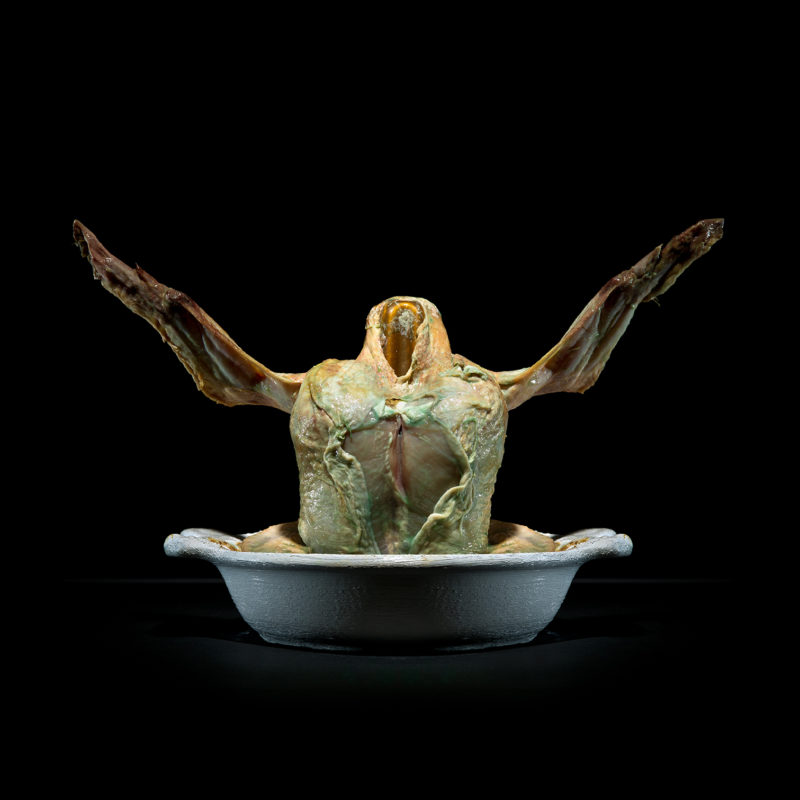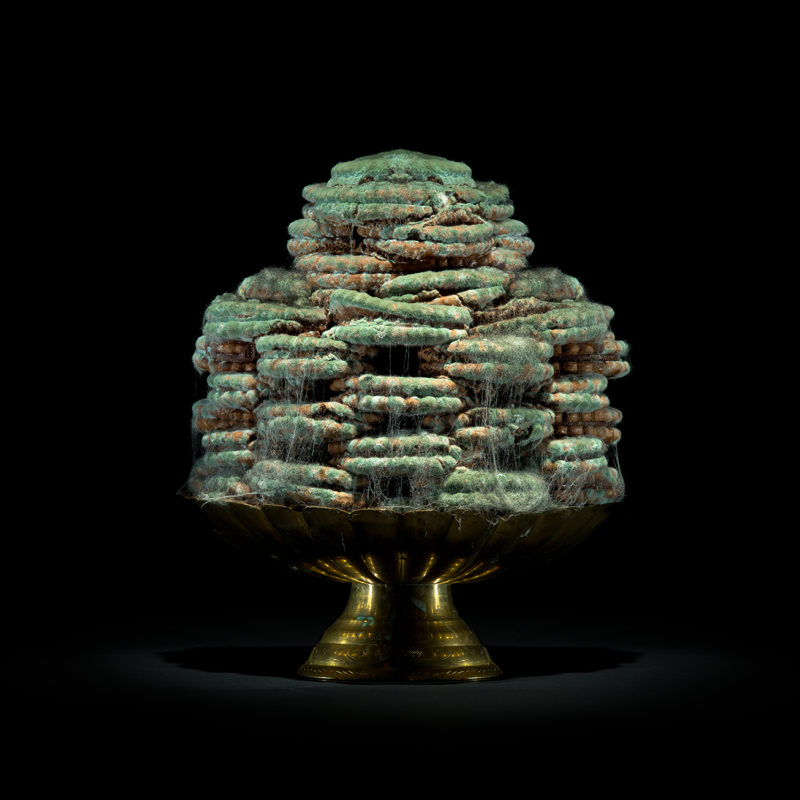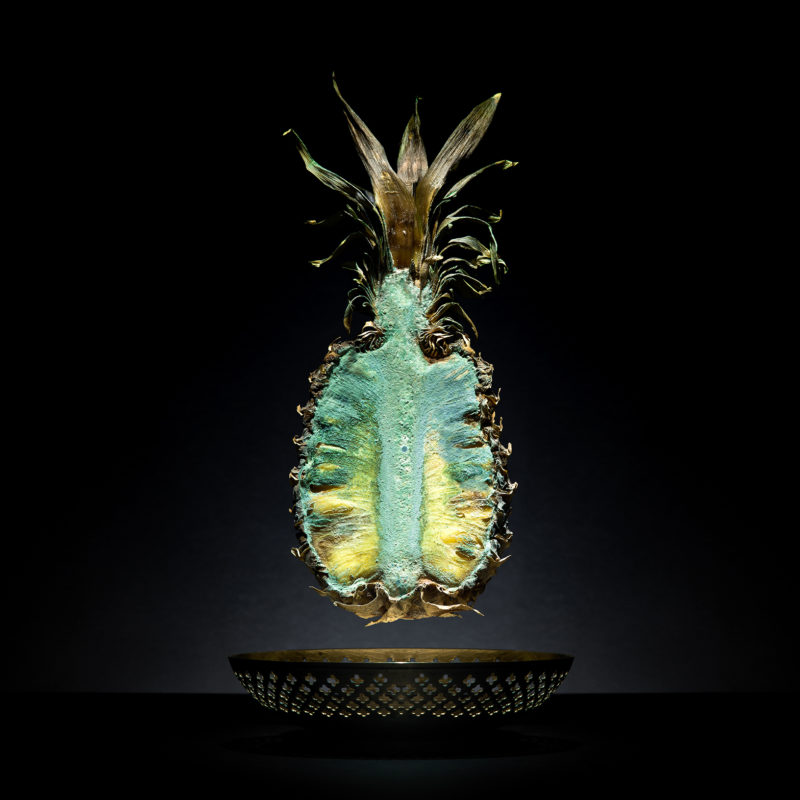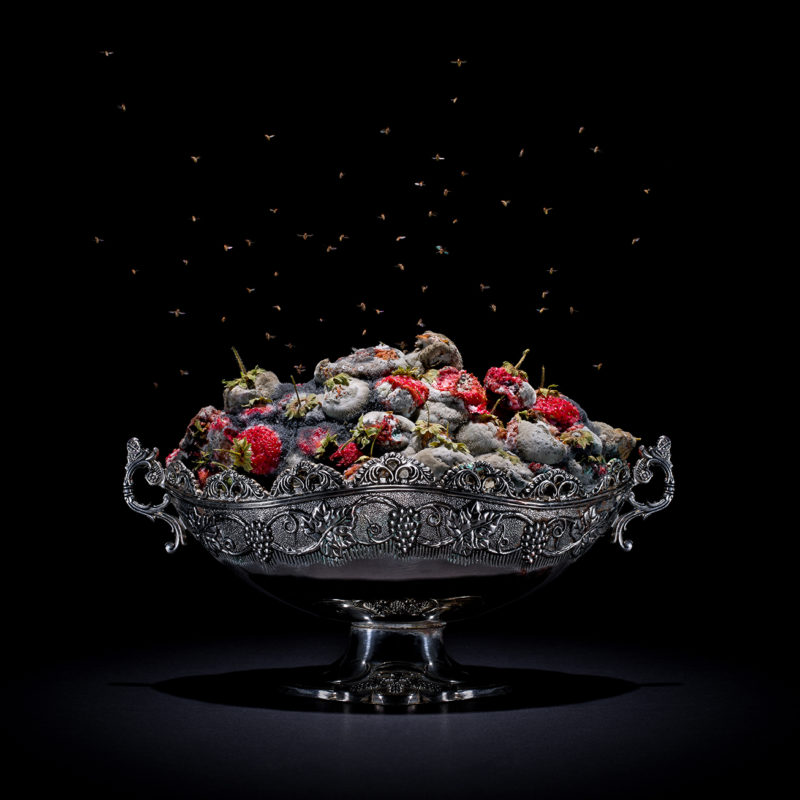Klaus Pichler, One Third
A consumer’s decision to select a particular food item is not only a matter of lifestyle but can be considered a highly political choice. Every individual item of food comes with its own unique history, shaped by factors ranging from means of production and transportation/food miles to carbon footprints, water requirements, and so on. According to a UN survey, one-third of the world’s food goes to waste, with the majority of this waste occurring in the industrialised nations of the Global North. At the same time, an estimated 925 million people worldwide are undernourished and face chronic hunger. The abundance and year-round availability of food enjoyed by citizens in the North, even as those in the South suffer from scarcity and hunger, is the result of systemic inequities which perpetuate the power imbalance between the Global North and Global South. Critics label this state of affairs a form of neocolonialism, in reference to the entrenched dependency structures which continue to regulate the relationship between former colonial nations and those which were once colonised. A flow of economic migrants into so-called ‘colonial enclaves’ in agricultural areas of the North is another indicator of neocolonial tendencies. One Third describes the connection between globalised food production, transportation/food miles, and waste. Rotting food, here arranged into elaborate still lifes, serves as an abstract representation of wastage while accompanying lists of kilometric and production values[1] offer an in-depth statistical examination of the underlying roots of this issue. One Third goes beyond the sell-by date in order to document global food waste in all of its dimensions, in the process linking waste and consumer behaviour toward food to global inequality in general.
[1] Statistics provided by GLOBAL2000, an independent Austrian environmental organisation; see, www.global2000.at/en.
Klaus Pichler (b. 1977, Austria) lives and works in Vienna. After he finished his landscape architecture studies, in 2005, he decided to become a full-time photographer. Since then, he has been producing independent photo projects, on a diverse range of topics, which have been published and exhibited extensively in recent years. His work draws inspiration from the hidden aspects of everyday life. Pichler is represented by Anzenberger Gallery, in Vienna, and ROCKELMANN &, in Berlin.
Place:
Bunkier Sztuki Gallery of Contemporary Art
pl. Szczepański 3a
Opening:
26.04.2019, 6 pm
Exhibition open:
27.04–16.06.2019
Tue–Sun 11.00–19.00
TIckets:
6 PLN / 12 PLN





